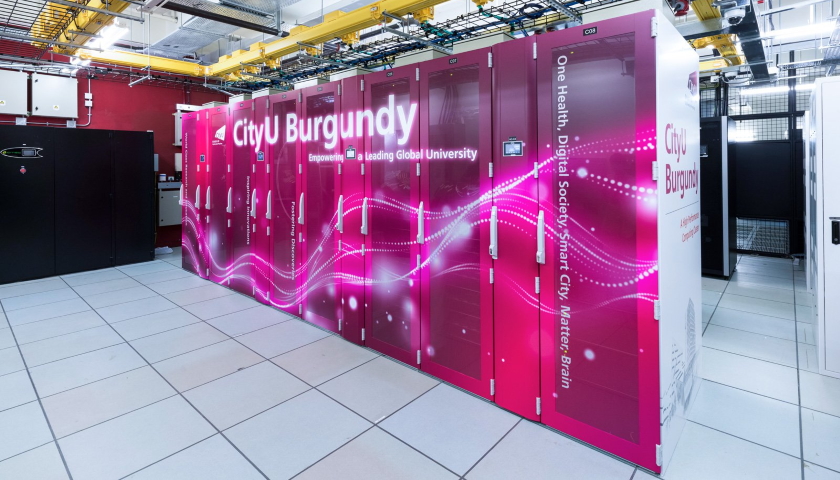Hewlett Packard Enterprise (HPE) has built a new supercomputer for the City University of Hong Kong (CityU).
Spanning eight racks, the new CityU Burgundy system is equipped with HPE Apollo 2000 and Apollo 6500 Gen10 Plus systems; it features 328 AMD Epyc 7742 processors and 56 Nvidia V100 Tensor Core GPUs and 8 Nvidia A100 80GB Tensor Core GPUs. A previous CityU release says the system is capable of up to 1.1 petaflops of performance.
HPE said the new HPC cluster is a ‘significant performance’ upgrade to CityU’s previous HPC resources, delivering nearly 10 times faster speed. It will be used for applications to improve modeling and simulation across biomedicine, quantum chemistry, and social and behavioral science.
“At CityU, HPC plays a critical role in helping us build and support a world-class research team to continue making scientific breakthroughs for humankind,” said Dr. Dominic Chien, Senior Scientific Officer (HPC) at CityU. “The new HPC cluster brings us one step closer to building Hong Kong’s most powerful HPC platform for academia while achieving operational efficiency and reduced costs. It is particularly encouraging to see an early signal of success as the HPC platform has helped reduce the turnaround time of computations by three to seven times in a quantum chemistry research project.”
HPE noted that with the new system CityU has consolidated compute capacity into a single location, reducing its data center space and carbon footprint and allowed it to turn off more chiller plants in various buildings.
“High performance computing continues to play a critical role in delivering new capabilities for harnessing large amounts of data to process and generate meaningful insights in almost any field of study,” said Bill Mannel, vice president and general manager, HPC, at HPE. “We are honored to have delivered advanced HPC resources for City University of Hong Kong by designing a significantly faster HPC cluster with energy-efficient, end-to-end solutions that has inspired other uses of supercomputing in various disciplines, from traditional forms of science, such as physical, biological and chemical science, to behavioral and social studies.”
Source: datacenterdynamics.com





